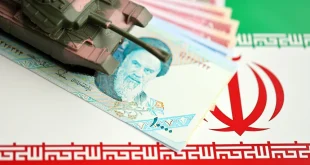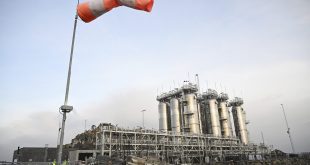Continued Blacklisting and Enhanced Sanctions Would Hinder Iran’s Trade Contacts, Foreign Investment, and Access to Financial Institutions The Financial Action Task Force (FATF), the international body charged with combatting money laundering and terror finance, placed Iran on its blacklist in 2007 because of its failure to address weaknesses in its …
Read More »The Iğdır-Nakhichevan Pipeline: Development and Strategic Significance
A major change in the energy landscape of the South Caucasus has occurred with the opening of the Iğdır-Nakhichevan gas pipeline, which has strengthened strategic energy alliances and reshaped regional dependencies. This accomplishment is especially significant as Türkiye navigates a critical energy security phase, since important natural gas contracts with …
Read More »The Russia-Iran Strategic Partnership Pact: Energy Geopolitics and Shifting Global Alliances
When Iranian President Masoud Pezeshkian and Russian President Vladimir Putin signed the Treaty on Comprehensive Strategic Partnership in Moscow on 17 January 2025, it marked a significant turning point in the expanding partnership between Iran and Russia. Broad collaboration in vital areas like defense, counterterrorism, energy, finance, technology, cybersecurity, peaceful …
Read More »Can Iran Forestall a Domestic Energy Collapse?
The Government Is Reducing Fuel Quotas and Is Considering Digital Fuel Cards, Tiered Pricing, and Energy Coupons Iran consumes more energy per person than many developed nations, though poor energy efficiency leads to extensive waste. The core reasons for this are energy subsidies and pricing schemes that buck market realities. While Iranian …
Read More »Iran’s Energy Dilemma: Constraints, Repercussions, and Policy Options
Despite vast oil and gas reserves, Iran faces a severe energy crisis due to decades of mismanagement, excessive subsidies, corruption, and international sanctions, which have crippled its infrastructure and distorted energy markets. Without structural reforms and international engagement, the country risks deeper economic instability, environmental degradation, and political unrest. Iran has …
Read More »Geopolitics in Transit: U.S. Becomes Key Gas Player in Turkey
Turkey’s Growing Reliance on U.S. Liquefied Natural Gas Represents a Purposeful and Strategic Policy to Improve Energy Security As Turkey’s second-largest supplier of liquefied natural gas this past winter, the United States has become a significant player in the country’s gas industry. By topping five billion cubic meters and surpassing more established …
Read More »Deepening Iraq-Azerbaijan Relations in Energy and Diplomacy
The Rapid Growth of Ties Between the Two Countries Shows How Ossified Divisions That Once Marked the Regions Are Breaking Down Azerbaijan and Iraq are less than 400 miles distant but through much of recent history, they might have been on the other side of the world. With Azerbaijan incorporated …
Read More »From Caspian to Continental: Türkiye’s Bid to Supply Europe with Turkmen and Azeri Gas
Significant progress has been made in establishing Türkiye as a major regional gateway for the transit of natural gas, especially in enabling the shipping of gas from Turkmenistan and Azerbaijan to Europe. Its strategic positioning in the global energy market is strengthened by its participation in significant infrastructure projects like …
Read More »The Gulf States’ Carbon Capture and Storage Ambitions
The GCC states have invested heavily in carbon capture and storage systems to lower their atmospheric emissions and take advantage of the high demand for these services in the years to come. The states of the Gulf Cooperation Council (GCC), long among the world’s greatest oil producers, are going through a …
Read More »Iran, Israel race to court Azerbaijan as rivalry in Caucasus heats up
Iran's president Masoud Pezeshkian and Azerbaijan's president Ilham Aliyev in a bilateral trade forum, Baku, April 28, 2025
Read More »









